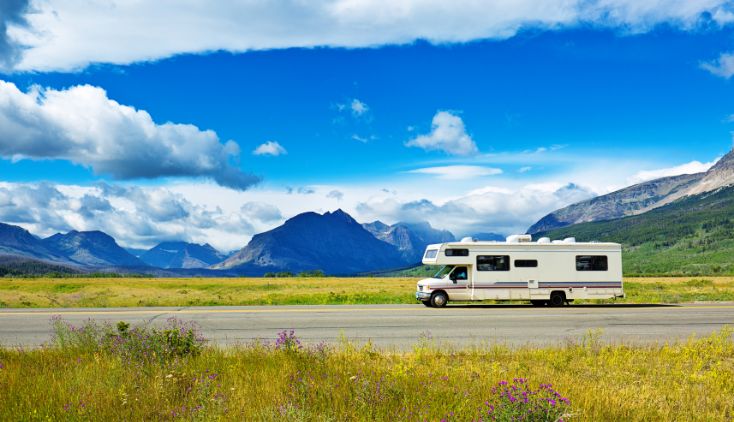From Wheels to Wilderness
Planning a camping trip or renting an RV can be an exciting way to explore the outdoors. Whether you're new to this experience or a seasoned camper, these helpful tips will ensure your adventure is smooth, fun and unforgettable.
Camping and RV Renting Tips
1. Pick the Right Type of RV
Choosing the right RV for your trip is key to a comfortable journey. Think about the size and features you need:
- Class A: Large, luxury RVs with lots of space, ideal for longer trips or bigger groups.
- Class B: Smaller and more compact, easier to drive, great for quick getaways.
- Class C: Mid-sized with good space but still easy to handle.
If you're not sure what’s best, talk to rental companies for advice based on your trip length, the number of people and any special requirements.
2. Create a Flexible Itinerary
While it’s fun to plan your route and stops, leave room for flexibility. Some of the best camping adventures happen when you take a detour or discover a new spot along the way. Use apps or maps to plan, but don't be afraid to change your schedule if you find an exciting trail, scenic overlook, or quiet campground.
3. Prep for RV Living
Living in an RV is different from staying at home or in a hotel. To make it more enjoyable:
- Practice driving: If you’re new to RVs, take time to get comfortable driving it before your trip.
- Test appliances: Learn how to use the stove, fridge and bathroom systems in the RV before hitting the road.
- Organize: Space in an RV is limited. Use storage bins and hooks to keep things tidy and accessible.
4. Plan for Power and Water Needs
When camping with an RV, you’ll need to think about power and water. Many campgrounds have hookups for electricity, water and sewage, but some do not. Be prepared:
- Portable power source: Consider bringing a portable generator or solar panels in case you camp off the grid.
- Water and waste: Learn how to fill your RV's water tank and empty waste tanks before heading out.
5. Pack Camping Essentials
Even if you're camping in an RV, you’ll still need basic camping gear to make your trip more enjoyable. Bring:
- Camping chairs: Perfect for sitting around the campfire or enjoying the view.
- Portable grill: If you want to cook outdoors, having a small grill can add variety to your meals.
- First-aid kit: Always carry a basic kit for cuts, scrapes, or other minor injuries.
6. Stay Safe on the Road
Safety should always come first when traveling in an RV. Before starting your trip, check that:
- Tires: The RV’s tires are in good condition and properly inflated.
- Brakes and lights: All lights and brakes are working correctly.
- Backup plan: Keep a spare tire and emergency supplies in case you face breakdowns.
It's also a good idea to have roadside assistance coverage that includes RVs, just in case something goes wrong while you're on the road.
7. Embrace Nature with Outdoor Activities
Don’t forget that camping is all about enjoying the great outdoors. Plan activities like hiking, fishing, or biking to make the most of your trip. If you’re near a lake or river, try kayaking or paddleboarding. For families, simple games like frisbee or cards can be fun and keep everyone entertained.
8. Try Boondocking for an Adventure
Boondocking, or dry camping, means camping without any hookups (like electricity or water). It's a more adventurous way to camp, allowing you to stay in remote areas. If you want to try it:
- Choose the right spot: National forests or Bureau of Land Management (BLM) lands often allow boondocking.
- Conserve resources: Be mindful of your water and power usage when boondocking since you won’t have access to hookups.
- Leave no trace: Clean up everything when you leave, so you don’t harm the environment.
9. Make Meals Easy
Cooking while camping can be fun, but it’s also important to keep it simple. Plan easy-to-make meals like sandwiches, pasta, or one-pot dishes. Bring ingredients that can be used in multiple meals to save space. Prepping meals ahead of time can also save you from cooking during busy or tiring days.
10. Respect Nature and Campground Rules
Remember, you’re a guest in nature, so it’s important to respect the environment. Follow the “leave no trace" rule: clean up all trash, avoid damaging plants and keep noise to a minimum. Each campground has specific rules about fires, pets and quiet hours. Always be mindful of these to keep the space enjoyable for everyone.
Hit the Open Road
Camping and renting an RV offer a unique way to explore nature and take a break from daily life. With the right preparation, a flexible mindset and a sense of adventure, you can have a relaxing and memorable trip. Follow these tips to make your camping and RV experience smooth, fun and full of great memories. Happy camping!
